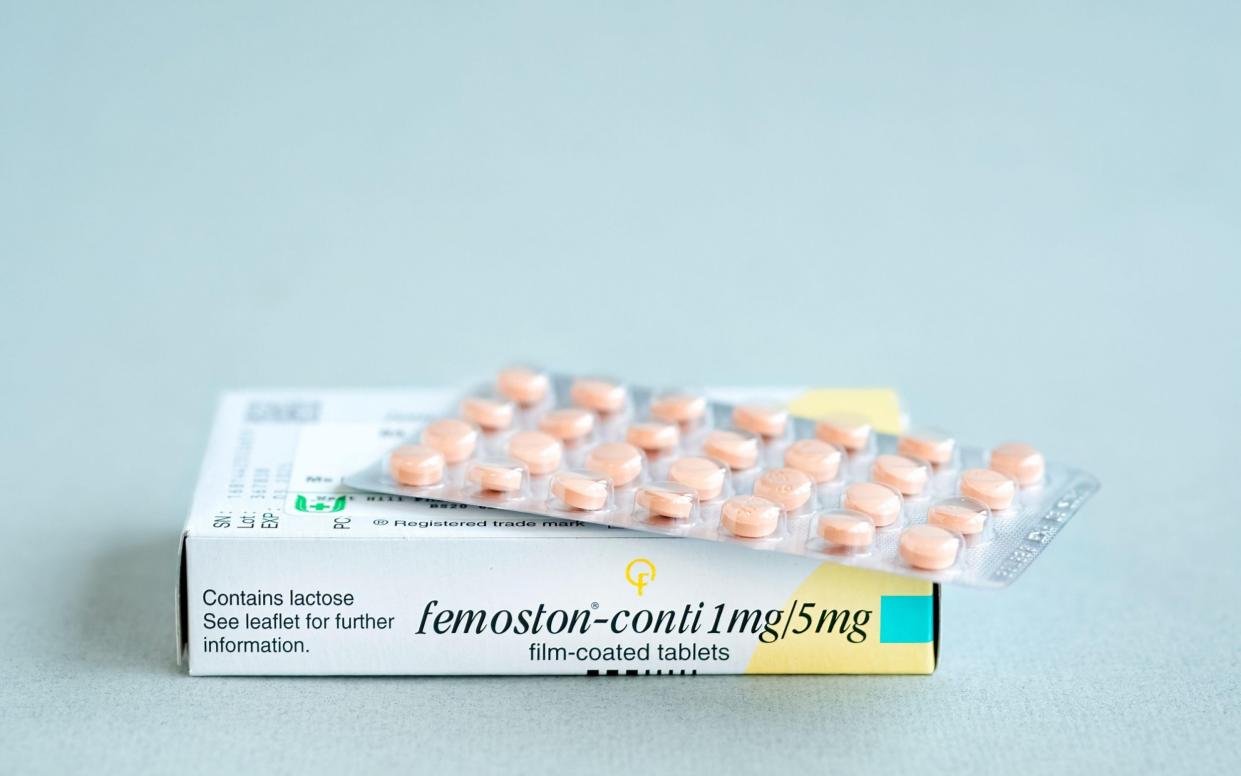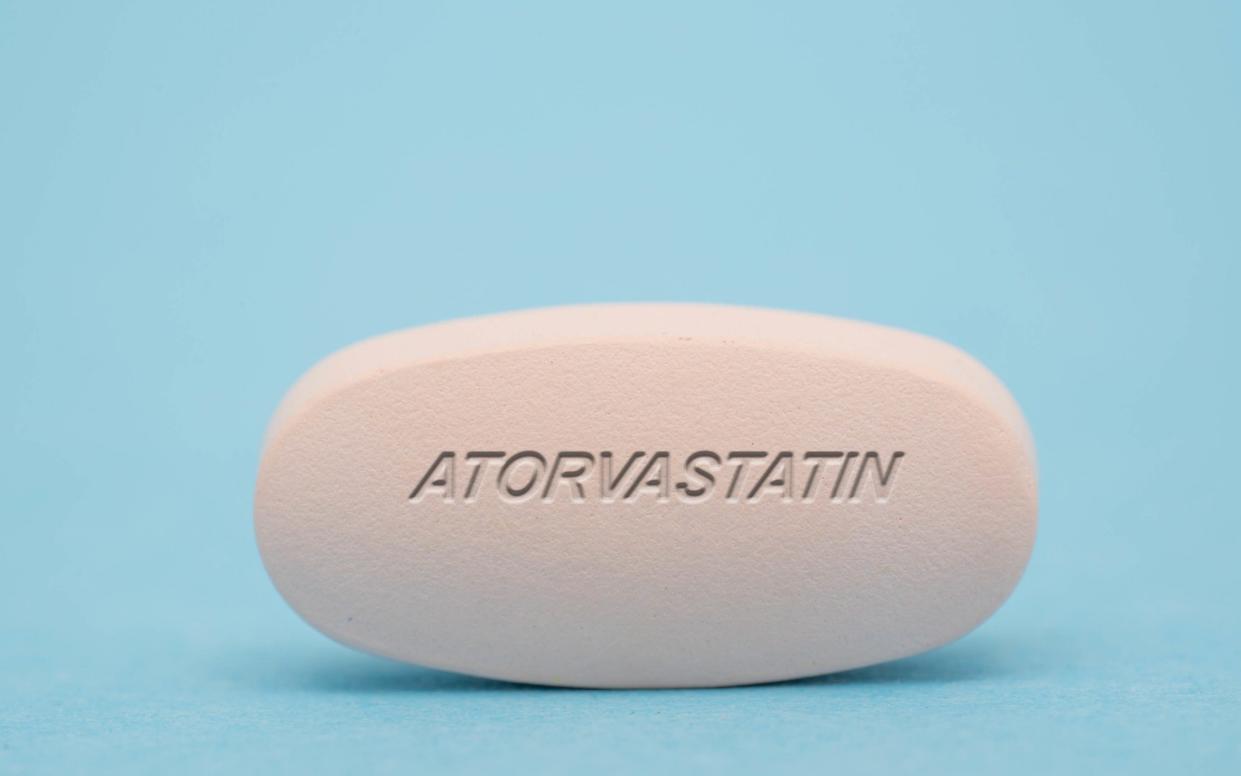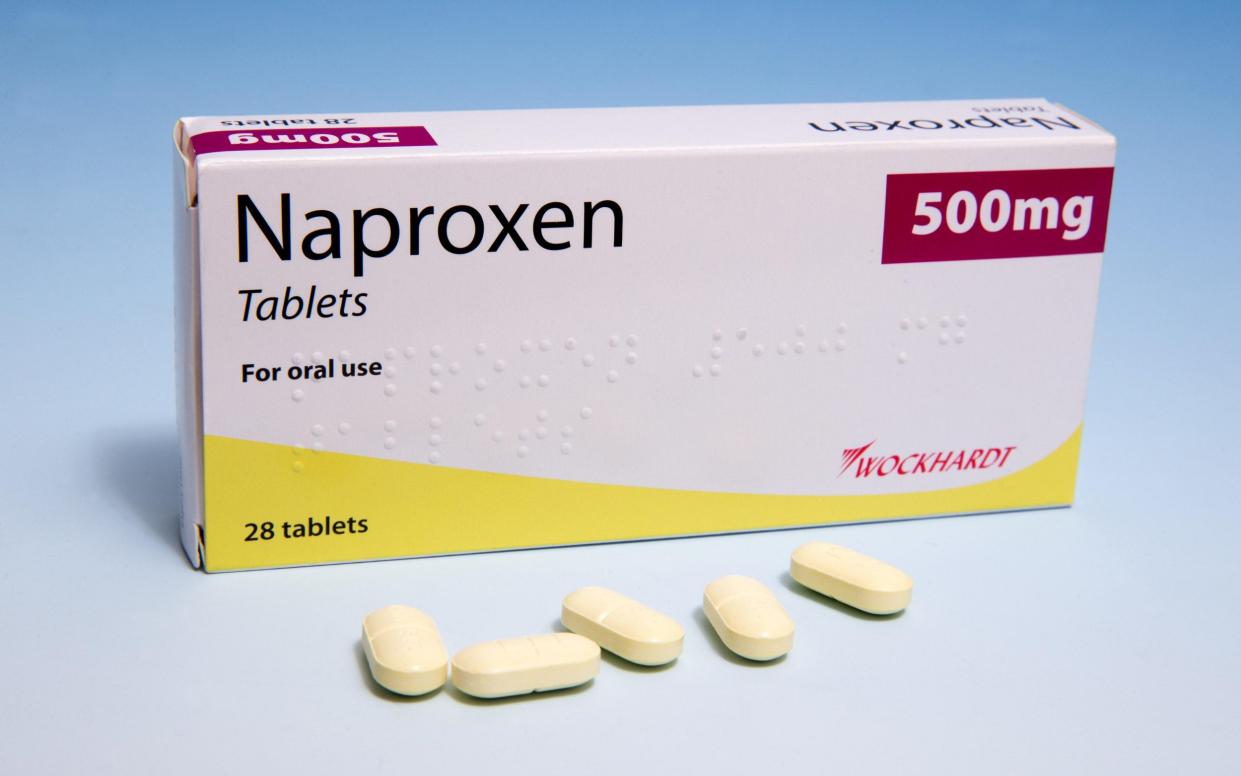The four common medicines that could help prolong your life

Thanks to medical, scientific and social progress, a child born in the UK today has a greater than 50 per cent chance of living into their 90s. Might one day we be able to enhance our longevity even further? Perhaps. And according to new findings, four of our most commonly prescribed drugs could have a role to play.
A scientific analysis of UK health records found that Viagra, hormone replacement therapy (HRT), a statin and a painkiller were each linked with slightly lower chances of dying during a 12-year study.
“The idea was to see whether some drugs that have already been used to treat specific diseases might have a wider benefit and protective effect on ageing,” explains Kevin Perez, who co-authored the study and is the head of research at Epiterna, a pioneering science lab dedicated to longevity.
Originally it was suggested that the drug metformin, used to treat diabetes, might help patients live longer – even than those people who didn’t have diabetes and didn’t take the drug. “As it turned out we couldn’t find systemic evidence that this was the case,” says Perez. “But when we analysed the results, we did find that several other widely prescribed drugs might help people age better, by preventing illnesses and extending lifespan.”
Perez’s team, based at the University of Lausanne in Switzerland, studied data from the UK Biobank, the most comprehensive dataset of its kind, from half a million UK participants over a 12-year period. These four medicines were the ones that stood out. We asked independent experts what they thought and whether it might be worth taking these drugs for life-extending reasons.
Hormone replacement therapy (HRT)

The largest difference in death rate was seen in women taking medicines containing oestrogen, mainly HRT products. These were linked with about a 25 per cent lower death rate over the study, compared to similar women who did not take the hormone replacements, who were matched in terms of lifestyle factors such as weight, alcohol consumption and smoking, as well as ethnicity.
Interestingly, says Perez, studies have also found that Estradiol, the type of oestrogen most commonly used in HRT, had a life-prolonging effect on mice, but only in male mice.
Prof Melanie Davies is a consultant gynaecologist at University College Hospital London. She says: “HRT can have positive effects on bone and heart health which might reduce the risk of cardiovascular disease and osteoporosis and thus benefit long-term health.”
Though she argues that it would be too much of a stretch to conclude that HRT has “life-prolonging qualities”.
“Biobank volunteers tend to be richer, slimmer, smoke and drink less, and have fewer health problems than the general population – these factors all influence mortality and a previous study confirmed this,” Prof Davies points out.
“Similarly, women who use HRT are generally healthier than women who do not, or have paid to have a private prescription, so longer lifespan in observational studies may not be due to HRT use, but to the health of women choosing to take it.”
She warns that there are known risks of HRT, which “include breast cancer, heart attack, stroke, and thrombosis …. all potentially fatal conditions. It’s all about using the right type of HRT for the right women at the right time”.
Independent verdict
Is it worth considering HRT even if menopausal women are asymptomatic?
No. “A woman’s individual risk of harm needs to be weighed up against the potential benefits,” says Prof Davies.
Viagra

There were also significant but somewhat lower effects seen in people taking sildenafil, more commonly known by the brand name Viagra, used to treat erectile dysfunction (ED) Pfizer originally discovered the medication in 1989 while looking for a treatment for angina, and it was approved for medical use to treat ED in the United States and Europe in 1998.
Dr Neil Srinivasan is a consultant cardiologist at the UK heart clinic. “Viagra is a drug which works by dilating blood vessels and increasing blood flow throughout the body, including to the penis,” he explains. “It is also used to treat pulmonary arterial hypertension, and vascular risk factors have also been linked to certain types of dementia, including Alzheimer’s disease.”
He points to a recent UCL study of middle-aged men which tracked the health of those aged 40 or older who had been diagnosed with ED. Men who were prescribed Viagra or a similar drug, he states, had an 18 per cent lower risk of developing Alzheimer’s disease, compared with men who weren’t given the medication.
“It should be noted that such cohort studies that look at medical records retrospectively have significant confounding factors, so more research is required,” he says. “For instance, Viagra use may be a marker for better overall health, and that these patients were more physically active.”
Perez agrees that the correlations could have arisen because people who are healthier to begin with are more likely to use Viagra. “If you have more sexual activity then it improves your cardiovascular levels and sex, as well as being a physical activity it’s good for our mental health, is found to make people happier. Happier people have been found to live longer.”
“As researchers we try to take account of such factors when looking at the data, but there can always be biases.”
Independent verdict
Is it worth considering the use of Viagra for asymptomatic men?
No, says Dr Srinivasan. “I see no harm in the use of Viagra for ED, but I wouldn’t necessarily be using it regularly to prevent Alzheimer’s disease or general ageing just yet.”
Atorvastatin

Atorvastatin belongs to a group of medicines called statins, pills which are generally taken once a day to lower cholesterol and prevent heart disease, including heart attacks and strokes. If you have a family history of heart disease, or a long-term health condition such as diabetes or rheumatoid arthritis your GP may prescribe it.
Dr Srinivasan says “there is insurmountable evidence that LDL-cholesterol (“bad cholesterol”) is associated with cardiovascular mortality”. He points to a wealth of evidence that statins in patients at high risk of cardiovascular events can prevent cardiovascular death by lowering LDL cholesterol.
Adding that there is also evidence for the efficacy of statins in low risk patients, too.
“In individuals with a five year risk of major vascular events lower than 10 per cent, each 1 mmol/litre reduction in LDL cholesterol produced an absolute reduction in major vascular events of about 11 per 1000 over five years. This benefit greatly exceeds any known hazards of statin therapy,” says Dr Srinivasan.
There is insurmountable evidence that LDL-cholesterol is associated with cardiovascular mortality.
Independent verdict
Is it worth considering the use of statins for asymptomatic people?
Yes. “We have come to a stage where most commonly used statins are off-licence and can be offered as a generic formulation, which means they are extremely cheap,” says Dr Srinivasan. “We put fluoride in water so why not statins? For me, statins should be handed out like Smarties to the general public.”
Naproxen

Commonly naproxen is prescribed for musculoskeletal pain such as that caused by a sprain or osteoarthritis of a joint. The painkiller dampens pain by lowering inflammation, which is suspected of playing a role in a wide range of conditions.
“Naproxen is what is called a non-steroidal anti-inflammatory drug (NSAID), similar to aspirin – the grandfather of the class – ibuprofen and diclofenac,” explains Dr Matt Brown, a consultant in pain medicine practising at OneWelbeck in London. “It does what it says on the tin: preventing cells from making pro-inflammatory chemicals when they are damaged by inhibiting an enzyme present in cells called cyclooxygenase (COX).
“Due to the ubiquitous role of COX in cells there is interest in the role of drugs that block COX and the impact they may have in modifying cancer risk, for example the add aspirin study,” adds Dr Brown.
In his opinion, the paper raises more questions than it answers regarding naproxen. “It is difficult to explain the finding, as it is limited to one drug in a broader class (i.e. NSAIDs) and as they say in their introduction, aspirin (another NSAID) was shown to not confer a mortality benefit in a big study. The other slightly odd thing is that they report no dose response with naproxen, so if you take more of it there is no more benefit (which if there was a pharmacological process at play you would typically see).”
Independent verdict
Is it worth considering the use of naproxen for asymptomatic people?
No. Dr Brown says: “NSAIDs are associated with a number of side effects due to the other roles that COX plays in the body, therefore the prescription of NSAIDs is contraindicated or advised with caution in patients with a wide range of comorbidities.”
Will these drugs help me live to 100?
The findings can’t be taken as proof that these medicines make people live longer, as it wasn’t a randomised trial – the best kind of medical evidence – but just simply correlations between taking each drug and a lower chance of death over the study period.
As Epiterna’s chief executive Prof Alejandro Ocampo, who commissioned the study, explains: “This experiment has already been run historically, the people have taken these drugs, and all we wanted to look at was whether there any drugs out there that could potentially be associated with longer lifespan in humans.”
But some of the drugs had a larger benefit on lifespan when taken at higher doses, which seems to support the effect being real, says Prof Ocampo. “I would not say that could be explained by a [healthier] lifestyle.”
Epiterna, he makes clear, have no plans to commercialise these drugs and there would be many regulatory obstacles and much more research and randomised trials needed before any kind of “longevity cocktail” could be created. “There is a lot of noise about longevity right now, a lot of snake oil and a lot of false claims,” says Prof Ocampo.
“These finds are exciting for us, but I don’t believe there will ever be a day where people ‘live forever’ by delaying multiple age-related diseases with drugs. What I believe is more realistic is people living to 100.
“We are not doctors working in the healthcare system so would never advise people to start taking drugs unless advised by their own physicians to do so.”
Recommended
How to 'switch on' your anti-ageing genes – and live longer


